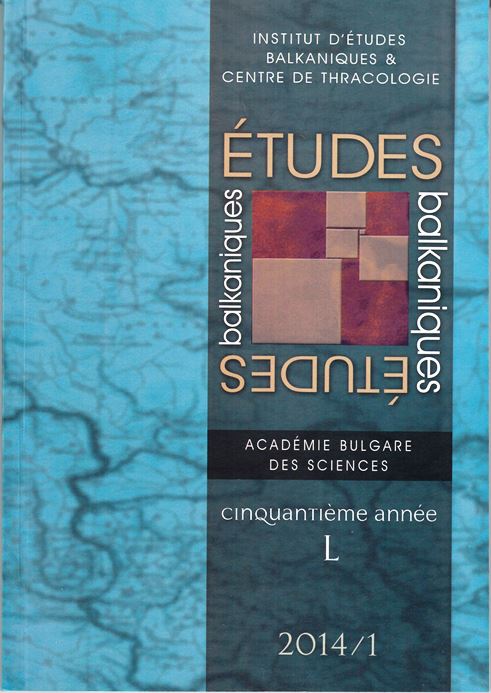

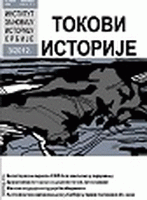
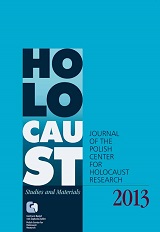
Keywords: Polish-Jewish relations; Holocaust; Jews; testimonies
This text analyzes personal documents, with emphasis laid on how certain Jews, authors of the works discussed, perceived Poles. It contains testimonies on the various aspects of Polish-Jewish relations during the occupation. In particular in focuses on: Anti-Jewish prejudice and stereotypes, the indifference of Poles toward the persecuted Jews, the actions of helpers and those aimed at offering aid to Jews, on acts of treason and violence, robbery and theft of Jewish property, as well as on acts of violence by Poles on Jews.
More...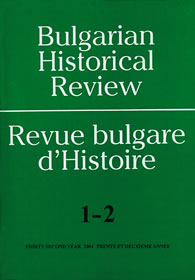
ROUND TABLE : The Balkans - Traditions and Changes. The Crisis of Identity and Intercultural Communication. Participants: Ivaylo Znepolski, Bogdan Bogdanov, Gueorgui Fotev, Ivaylo Ditchev, Svetlozar Igov
More...
Keywords: absurd in Ionesco’s dialogues; disturbances in ordinary conversation; politenesss and rudeness; instability; undecidability.
This paper approaches the question of the « absurd » in Ionesco’s dialogues, and more precisely in La cantatrice chauve, by comparing the way they work to ordinary conversations. We consider, above all, the different types of disturbances present in the corpus, which can affect, as well, the fictional represented world (temporality, causality), the characters’ behaviour (amnesia, incoherence), their discourse (confusion in the use of words, paralogisms, automatisms), the rules of communication (conversational maxims, turn-taking, sequential organisation). Then we turn towards the question of politeness (seen as equivalent to « face-work ») and rudeness, in order to see how the different characters behave in this respect in the different situations they are involved in : conversations between husband and wife, masters and their maids, hosts and their guests in the context of a visit. As a conclusion, we assert that the feeling of the « absurd » in Ionesco’s plays originates mainly on principles of instability and undecidability.
More...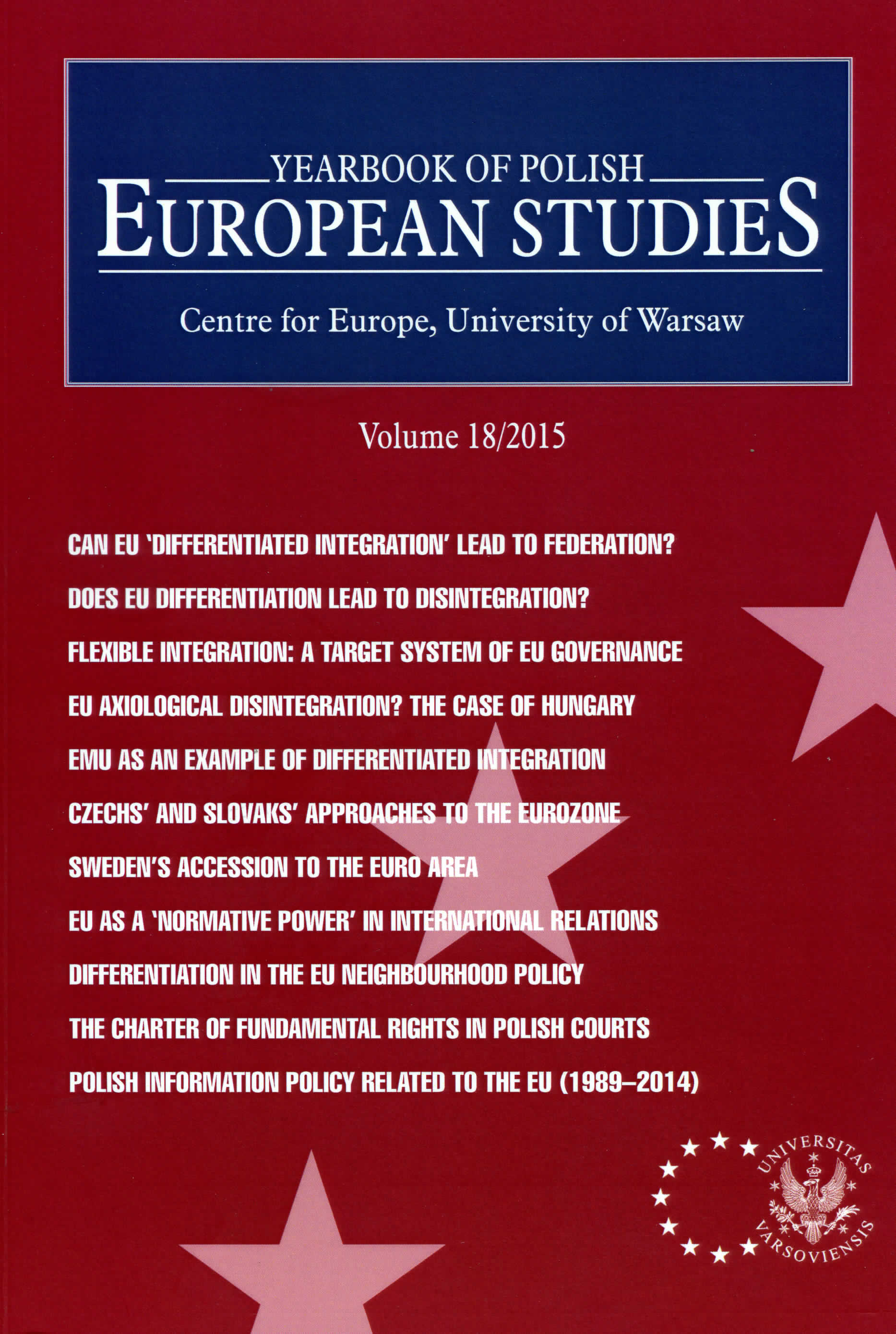
Polish Bibliography on European Integration 2008
More...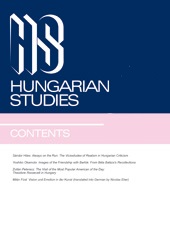
Keywords: transfer; mediators; reproductive reception; productive reception; canonization;
This study is devoted to the mediators - translators, philologists, publishers, writers - thanks to which was carried out the transfer of the Tragedy of the man of Imre Madách in the Germanic cultural sphere of 1862 to 1892. This period was particularly fruitful to two points of view. On the one hand, it saw the birth of seven translations, as well as a dozen reviews and reviews. Those published between 1888 and 1892 were intended to prepare the public for the upcoming appearance of Tragedy on German stages. On the other hand, many personalities for the German-speaking intelligentsia have made eulogistic statements about the Hungarian drama, while others have even recaptured this foreign masterpiece by drawing inspiration from him.
More...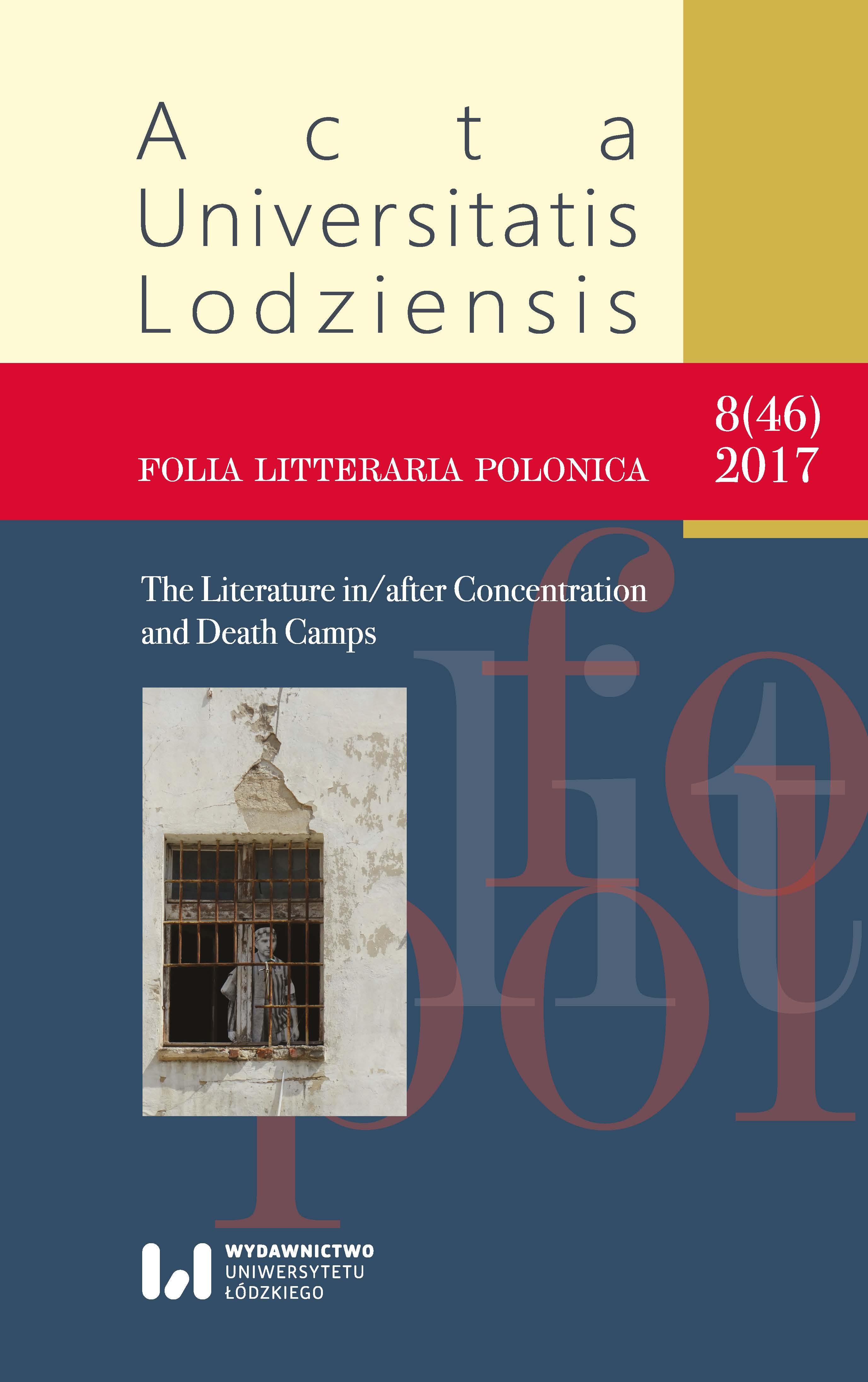
Keywords: Lager; Polish lager prose; zones of silence
The article reconstructs the most important issues on the map of Polish lager prose, those that are ignored, inconvenient for readers or authors, and sometimes for both. The author of the essay also presents the zones of silence that resulted not from the threat of violation of social taboos and political prohibitions, but from the negligence of researchers. They characterize the most important tasks faced by scholars of Polish lager prose.
More...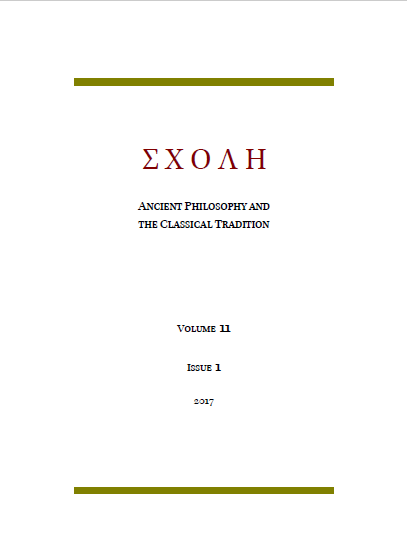
Keywords: Pyrrhonism; skepticism; truth; assent; belief; equipollence; suspension of judgment;
This is a defense of Pyrrhonian skepticism against the charge that the suspension of judgment based on equipollence is vitiated by the assent given to the equipollence in question. The apparent conflict has a conceptual side as well as a practical side, examined here as separate challenges with a section devoted to each. The conceptual challenge is that the skeptical transition from an equipollence of arguments to a suspension of judgment is undermined either by a logical contradiction or by an epistemic inconsistency, perhaps by both, because the determination and affirmation of equipollence is itself a judgment of sorts, one that is not suspended. The practical challenge is that, independently of any conceptual confusion or contradiction, suspending judgment in reaction to equipollence evinces doxastic commitment to equipollence, if only because human beings are not capable of making assessments requiring rational determination without believing the corresponding premises and conclusions to be true. The two analytic sections addressing these challenges are preceded by two prefatory sections, one laying out the epistemic process, the other reviewing the evidentiary context. The response from the conceptual perspective is that the suspension of judgment based on equipollence is not a reasoned conclusion adopted as the truth of the matter but a natural reaction to an impression left by the apparently equal weight of opposing arguments. The response from the practical perspective is that the acknowledgment of equipollence is not just an affirmation of the equal weight of arguments but also an admission of inability to decide, suggesting that any assent, express or implied, is thrust upon the Pyrrhonist in a state of epistemic paralysis affecting the will and the intellect on the matter being investigated. This just leaves a deep disagreement, if any, regarding whether equipollence is an inference based on discursive activity or an impression coming from passive receptivity. But this, even if resolved in favor of the critic (which it need not and ought not be), is not the same as confusion or inconsistency on the part of the Pyrrhonist, the demonstration of which is the primary aim of this paper.
More...
Keywords: anti-Semitism; de-Holocaustization; Museum of the History of Polish Jews (POLIN MHPJ); Polin myth; Polish historical policy; politics of memory; Polish Jews (concept revision); symbolic violence
The text offers an analysis of the MHJP’s core exhibition, the architecture of the Museum’s building as well as the transformations of its surroundings, seen as operations in as well as on a space that is a sign and a designate of the Holocaust. This observed de-Holocaustization of the Holocaust story takes place in the context of progressing Holocaustization of the story concerning the past of ethnic Poles. The main narrative uniting the MHJP’s surroundings, building and core exhibition is the idyllic myth of Polin which dictates the selection and presenting of information. The story of Polish hosts and Jewish guests that is inherent to the Polin myth establishes inequality and dominance/subjugation as framing principles of a story of majority-minority relations. It also constitutes a mental gag and an instance of emotional blackmail which precludes any rational – analytical and critical – conversation based on historical realities. Furthermore, in practice, it is a part of a pattern of culture which produces – and at the same time legitimizes – violence and exclusion. The article reconstructs the principles governing the Polinization of the history of Jews in Eastern Europe (a term coined by Konrad Matyjaszek). These principles include: emphasizing the Polish over the Jewish lieux de mémoire; presenting the figures and landmarks of importance for both groups through the prism of those aspects which concern the majority group; refraining from problematization of specific phenomena (like Judaism or transboundary character) and from applying to the a longue durée perspective; and decontextualization (e.g., by passing over anti-Semitism – Christian but not only Christian – and its significance for the construction of the majority group’s collective identity, an identity that over time increasingly determined the Jews’ conditions of life, until eventually it determined their fate). In relation to the core exhibition the text discusses such issues as: “last minute” censorship; affirmation of anti-Semitic phantasms (like the Paradisus Iudaerum or Esterka); the abandonment planned – and prepared – part of the exhibition dealing with the period after the regaining of independence by Poland in 1989; presenting numerous events and questions in a way that contradicts the state of research not only known but often arrived at in Poland (a particularly outraging example of this is abstaining from a realistic presentation of the Polish context of the Holocaust in favor of a return to the outdated category of the innocent, or indifferent, Polish bystander to the Holocaust). The stake of this retouched story is the image of Poland and reputation of Poles, that is to say – the complacency of the non-Jewish majority. The price is the mystification of Eastern European Jewish history and the thwarting of the potential for change which arouse as a result of the Jedwabne debate. This potential promised a chance for a revision of culture and a remodelling of social relations in the spirit of equal rights and integrated history. Apart from the period from 1944/45 to 1946, this chance was unprecedented in the Jewish-Polish and Polish-Jewish “common history that divides”.
More...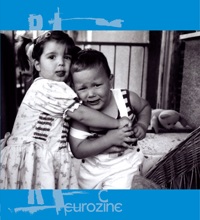
Keywords: Globalisation; the processes of globalisation; economic development; globalised economy;
What is the current state of globalisation, how are we to understand the processes involved and where will a globalised world system lead us? These are some of the questions Boaventura de Sousa Santos aims to elucidate in a thorough and wide ranging essay. Arguing that our current globalisation is indeed something unparalleled in history, Santos discusses the unequal economic and political realities between North and South which globalisation enforces. Globalisation is to be understood as a non-linear process marked by contradictory yet parallel discourses and varying levels of intensity and speed. Even states however have to adopt as the supremacy of the nation state is eroded, giving way to new transnational alliances and the convergence of the judicial systems as the supreme regulator of a globalised economy. Will all these processes usher into a new model of social development, or will this lead to the crisis of the world system as others fear?
More...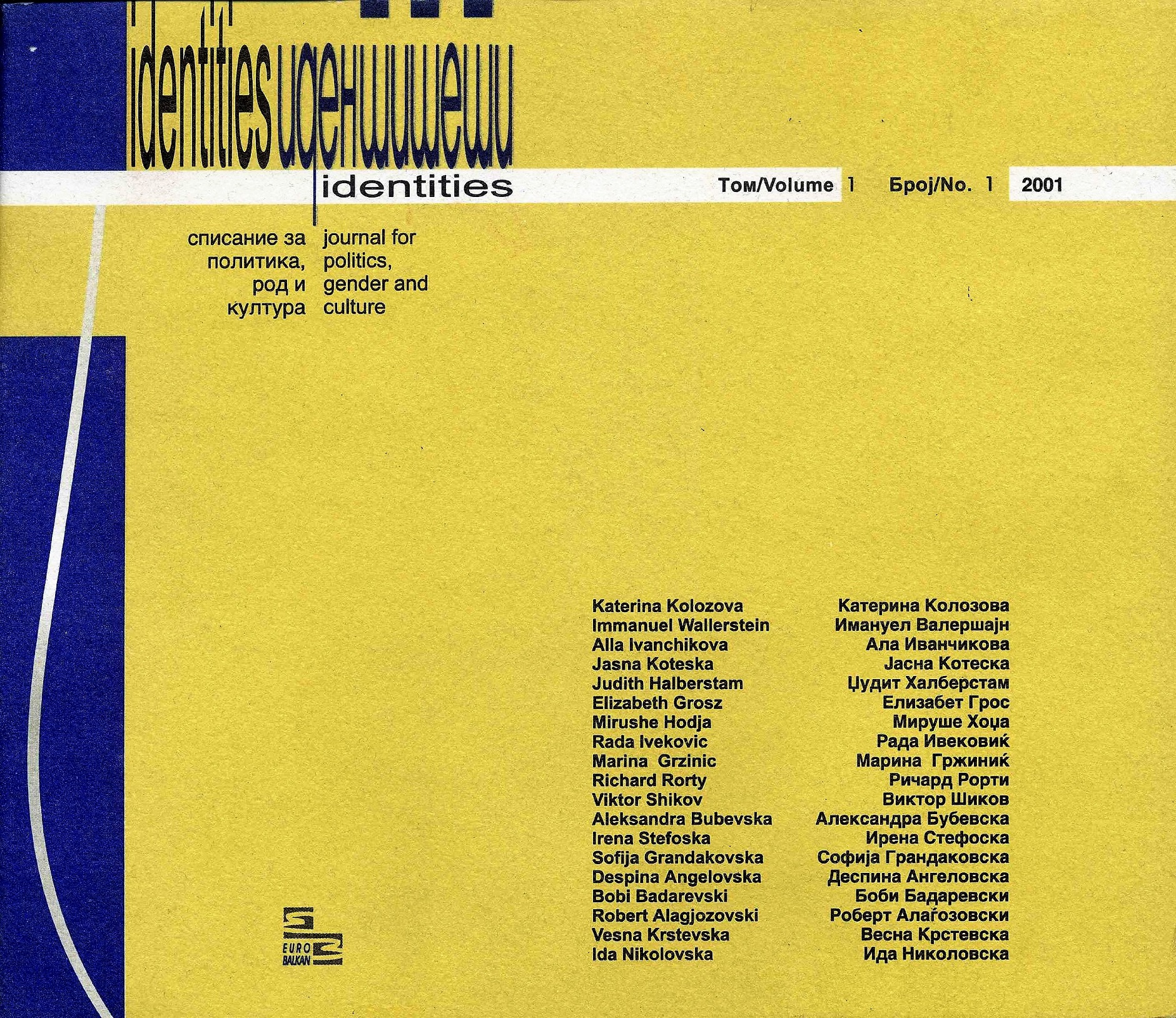
Keywords: postimperialism; masculinity;dominant masculinity;
In my book Female Masculinity (Duke UP, 1998), I found that I had little if nothing to say about the various dominant and subversive forms taken by male masculinity. My resistance to engaging the topic of male masculinities certainly left my project open to questions about the vagueness of the term masculinity itself and possibly created historical problems by failing to develop a model of the production of manliness. However, I argued in Female Masculinity that if what we call “dominant masculinity” appears to be a naturalized relation between maleness and power, then it makes little sense to examine men for the contours of its social construction. Male masculinity figured in my project as a hermeneutic, and as a counter example to the kinds of masculinity which seem most informative about gender relations and most generative of social change.
More...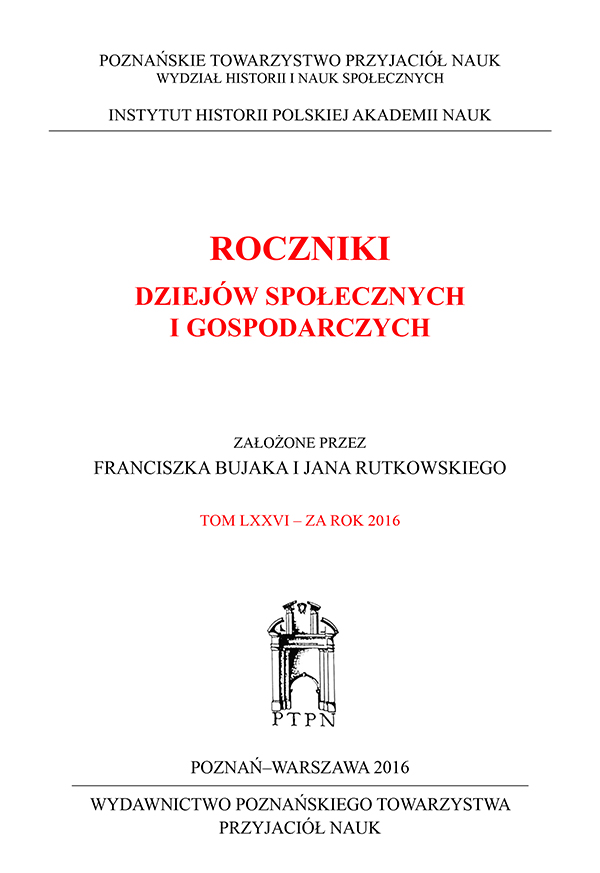
Keywords: Sarmatism; enlightened absolutism; clientage;servitude institute;
The Polish-Prussian history has traditionally been evaluated from the defensive point of view rooted in the times of the partitions. This led to excessive demonisation of the opponent, typical for hostile relations. Moderate demonisation of Prussia, however, was more justified. Prussian modernisation undertakings were either disregarded or ignored. Eventually, however, this trend changed thanks to the emergence of modernisation historiography, which could even be observed in the traditionally conservative Kraków School or the national democratic, and therefore modernisation-oriented, historical writings of Władysław Konopczyński and Adam Skałkowski, presenting Sarmatism as feudal anachronism and describing the absolutist – and therefore imposed from above (von oben) – modernisation in Prussia. This trend is still present in today’s historiography, but Sarmatism is also often seen from a multicultural perspective that focuses on individuality and otherness, and not on inferiority.The author believes it necessary to verify this state of affairs and describe the reforms thanks to which the discrepancy between the level of civilisation development of the Prussian and Russian partition in 1918 increased significantly in comparison to the year 1793. He then indicates a number of elements of such analysis.
More...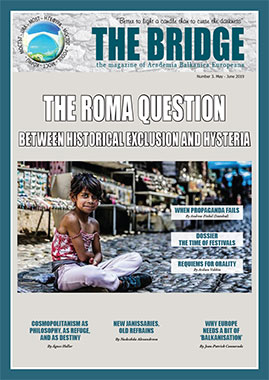
Keywords: Roma exclusion; cosmopolitanism;refuge
« THE BRIDGE » is offered in PDFs comprising always a full issue, unsplit into individual articles. Please take a look into the TABLE of CONTENT and into the EDITORIAL (above ↑) to look for authors and texts of interest for you.
More...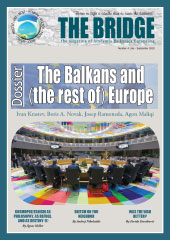
Keywords: Balkans; Europe; EU membership; political-cultural values of the European tradition; liberalism; tolerance; coexistence in diversity
« THE BRIDGE » is offered in PDFs comprising always a full issue, unsplit into individual articles. Please take a look into the TABLE of CONTENT and into the EDITORIAL (above ↑) to look for authors and texts of interest for you.
More...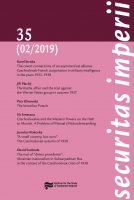
Keywords: Czecho-Slovakia;Nazi Germany;Sudetengau;Munich Agreement;Second Czechoslovak Republic;cession of borderlands;authoritarian regime;President Hácha;anti-Semitism;autonomous Slovakia;autonomous Carpathia
The study presents and analyses the period of the Second Czechoslovak Republic, contradictory and neglected by both Czech and European historiography. For Czech society, the Munich Agreement was a shock. What people have believed for twenty years and what they worked for self-sacrificingly was suddenly in ruins and questioned. For Masaryk’s republic, it was an economic, political, social and moral catastrophe. Weakened Czecho-Slovakia was in a difficult, desperate, even tragic situation. The belief in democracy was shaken, and the trust in the West was undermined. After its territorial losses, Czecho-Slovakia was left at the mercy of Hitler’s Germany. In a turbulent atmosphere, people looked for someone to blame. Attention is focused on the Sudetengau, which originated from the ceded borderlands, on the transformation of the relationship between the Czechs and the Slovaks, on the situation in Carpathian Ruthenia, as well as on considerable economic and social difficulties. At the forefront of interest is also the transformation of the political system, the operation and role of Syrový and Beran’s government, the election of President Hácha and the creation of authoritative democracy. A sad reality of that time is the awaken anti-Semitism that affected overall civil society, including elite professions. The Jews and Roma became second category citizens. The question remains to what extent Czecho-Slovakia only bowed to Berlin’s pressure, which intensified and strengthened, and to what extent it introduced its antidemocratic demands by itself. At the end of the fateful year 1938, the country lived in the shadow of the Nazi threat.
More...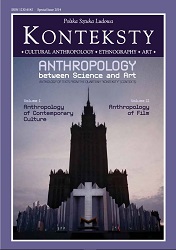
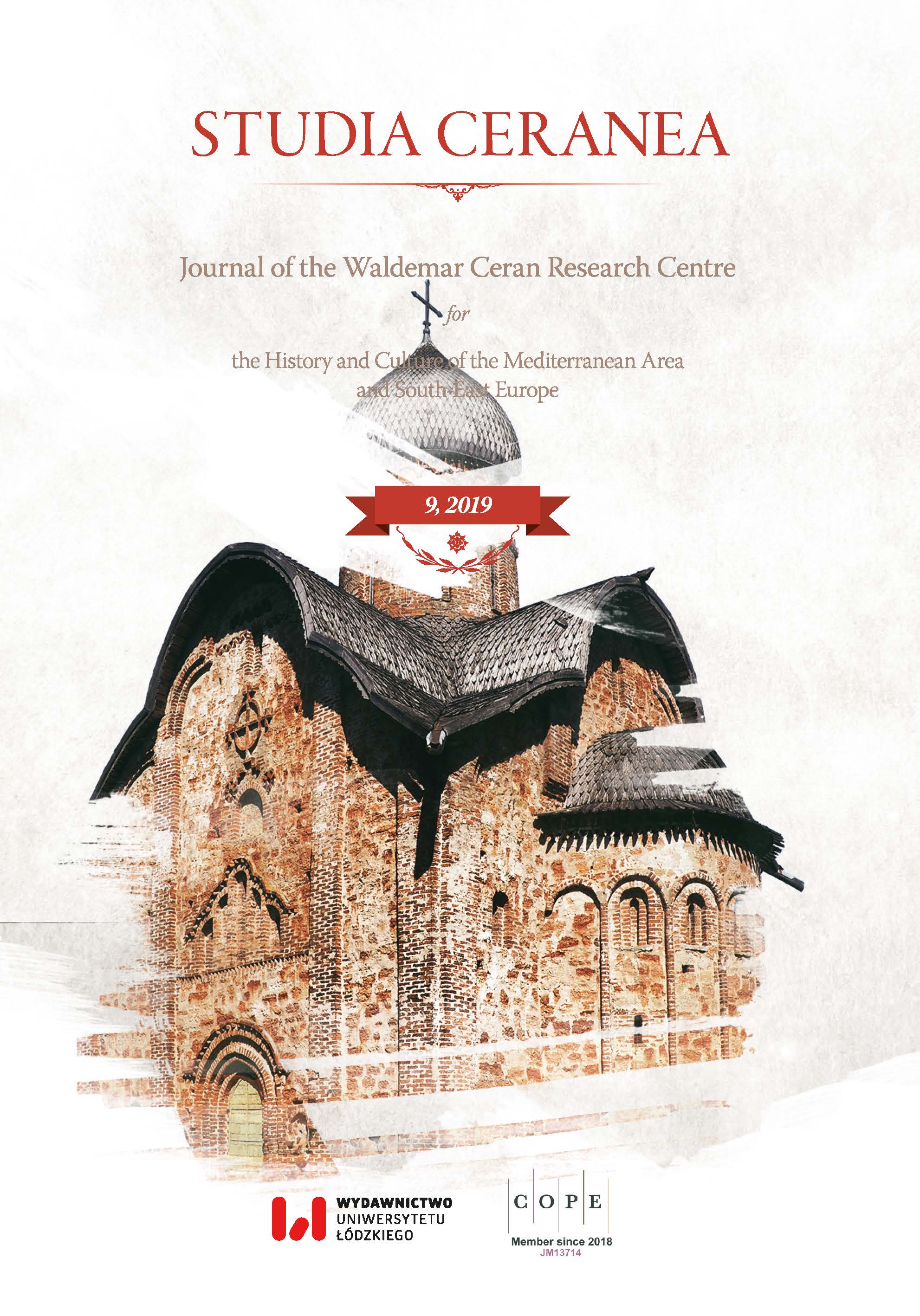
Keywords: Tabula Peutingeriana; vignette of Constantinople; the Column of Constantine; lighthouse
The article contains the analyses of 40 descriptions of the vignette of Constantinople in Tabula Peutingeriana created between the years 1768 and 2018. The number of these descriptions is not at all complete, however, it seems to give quite a representative survey of how has this vignette been interpreted throughout the last 250 years. Among these descriptions, merely five authors (H. Thiersch – 1909; F. Castagnoli – 1960; A. and M. Levi – 1967 and M. Reddé – 1979) believe that one of the elements of that vignette is a lighthouse. The article explains the origin of this erroneous interpretation on the basis of the edition of Tabula Peutingeriana from the year 1753, prepared by F.C. von Scheyb, and repeated by K. Mannert (1824), E. Desjardins (1869–1874) and K. Miller (1888), as well as of the observations in this field made by H. Gross (1913) and W. Kubitschek (1917). What is today regarded as the most probable interpretation of the element of that vignette, referred to as the lighthouse is the thesis that what is referred to here, is the Constantine’s Column, on whose top there is the statue of the founder of the Second Rome. If we assume the second half of the 4th century as the time when Tabula Peutingeriana was created, then the Constantinople vignette would be the oldest graphic presentation of that column. However, the graphics of the vignette is far from the descriptions of Constantine’s column in the Byzantine sources. That might result from a simple mistake made by the later copiers, or it can also be the effect of their conscious modifications of the most important vignettes on the map. For the Constantinople vignette, compared to the vignettes of Rome and Antioch, seems to contain a certain symbolic code, which allows for dating the copy of map stored today in Vienna. It seems that the original map could have been created, as it seems, in the 2nd half of the 4th century, as it is traditionally assumed. Probably it had been graphically retouched quite substantially (at least as far as the vignettes of Rome and Constantinople are concerned, joined in a strict mutual relationship) in the Carolingian period, and, more exactly, in the 1st half of the 9th century, and then, for the second time, the map underwent modifications aimed at updating its contents in the 13th century.
More...Keywords: control; world; pre-human living beings; human species; community; individual; knowledge; science; technology; values; nature; society; information; energy; vulnerability/fragility; stimulants;
In today‘s context, the title implies taking the pandemic as the proof of the weak/at least disputable capacity of humans to control the world. However, as the pandemic as such is not a simple biological phenomenon but a social-biological one, so the above implication is false because the humans do not constitute a homogenous entity in front of nature/the pandemic. The multiple social divisions explain both that the responsibility for the creation of the pandemic is not the same for all humans (and was not, even much before the pandemic), and that the consequences of the pandemic are not equally endured by all (and they have never been, even much before the pandemic), and nor is the problem of control of the world tackled in the same manner by all. Actually, the paper only sketches an investigation of the human control of the world rather echoing the coexistence of human brittleness with the societal conditions that weaken or strengthen/even create it. The reason of this sketch is that the control is the intentional aspect of human activities –and for humans this intentional aspect is related to values, and not only to adaptations made by the ―machine structure of life itself –and thus the direct results of the human intentions can be confronted with their broader and indirect consequences. And, because this relationship is mediated by knowledge, more precisely by science, the contradictions between various types of intentions and the present visible results of their consequent actions deny the festive image from different origins about the incontestable progress in the human control of the world. In this sense, the point is that fragmented advances in science and technology –regardless of the general use of their application –do not converge towards unitary, coherent and effective control of the world and even less towards human control. The capacity to control the world and the state of fragility of humans are mutual criteria, insomuch as they depend on the class and community membership of the individual. The dialectic of the individual‘s-community‘s-species‘ control in the world is highlighted. What does control mean –much beyond the well-known discussions about the original meanings of (the word) cybernetics –and what does human control mean are questions that the paper only opens.If some aspects of the style could suggest a ―manifesto highlighting a rough attitude towards the correlations analysed by the scientific research of the human-nature and human-human relationships it is because of the moment of world emergency challenging the solving of the contradictions which are not new but have entered the phase of uncontrollable storm. Generally, all the manifestos were based on the authors‘ belief that they responded to unique moments in the human history. The present article, contributing to the scientific demonstrations about the above relationships and the conditions of solving them, shows one of the conclusions of these demonstrations as feature of the present moment: that there is no longer time and space for further deploying the cognitive and social model that does not control the world emergency.
More...